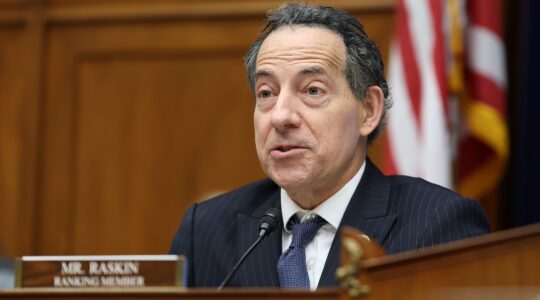WASHINGTON (JTA) — Jewish groups lauded the passage of the U.S. Senate version of economic recovery legislation.
Both the United Jewish Communities and the Jewish Council for Public Affairs said Tuesday’s vote was a necessary step toward restoring a healthy economy and assisting the most vulnerable.
“It is crucial that those who have been devastated by the economic recession have access to the social services that will help to blunt its impact,” said William Daroff, vice president for public policy and director of United Jewish Communities’ Washington office.
Though there is still much work to be done, this legislation is a pivotal step toward reinvigorating the economy and taking care of those experiencing difficult times,” said Rabbi Steve Gutow, executive director of the Jewish Council for Public Affairs.
The $838 billion bill passed by a 61-37 margin with the help of three Republican votes.
UJC, JCPA, and the Religious Action Center of Reform Judaism have all backed the stimulus legislation because of the services it funds for vulnerable populations, the assistance it would provide to Jewish social service organizations and the general boost it is expected to give the economy. The National Council of Jewish Women has backed specific provisions of the bill.
The only Jewish group to go on record as opposing the bill is the Republican Jewish Coalition, which said the legislation was not sufficiently targeted at stimulating the economy.
Daroff pointed out that both versions of the legislation include an $87 billion rise in the Federal Medical Assistance Percentage, or FMAP, which provides vital funding for Jewish nursing homes and family services organizations. He also noted that while the Senate cut the entire $1 billion of funding that the House provided for the Community Services Block Grant, the Senate provided $400 million in funding for the Social Services Block Grant while the House bill appropriated nothing.
Representatives of JCPA and the Religious Action Center said they preferred the House version, but still backed both bills.
“The overall Senate bill is not as strong as the House on social service funding, but we still support the Senate bill as an important step toward reviving the economy,” said Hadar Susskind, Washington director of JCPA.
Among the other major differences in the bills in social service funding are the $3.5 billion the Senate cuts out of the House’s $20 billion for food stamp funding, the halving of funds for Head Start and Early Start from $2.1 billion in the House to $1.05 billion in the Senate, and the elimination in the Senate of $1 billion in home heating assistance for low-income Americans. The Senate cut half of the $200 million the House allocated for the Emergency Food and Shelter Program.

Help ensure Jewish news remains accessible to all. Your donation to the Jewish Telegraphic Agency powers the trusted journalism that has connected Jewish communities worldwide for more than 100 years. With your help, JTA can continue to deliver vital news and insights. Donate today.





